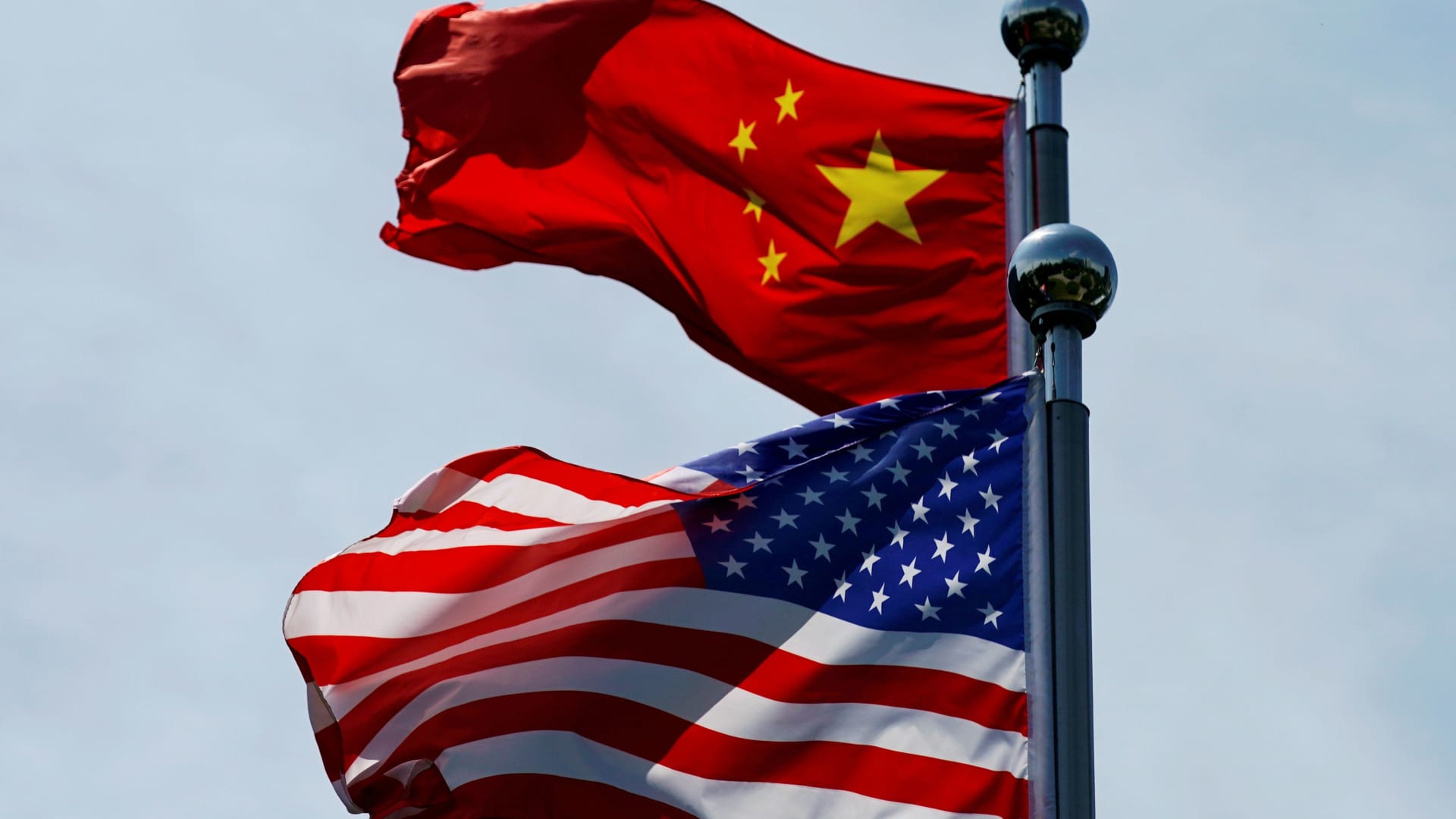Chinese and U.S. flags flutter near The Bund, before U.S. trade delegation meet their Chinese counterparts for talks in Shanghai, China July 30, 2019.
Aly Song | Reuters
BEIJING — A record share of U.S. companies in China are accelerating their plans to relocate manufacturing or sourcing, according to a business survey released Thursday.
About 30% of the respondents considered or started such diversification in 2024, surpassing the prior high of 24% in 2022, according to annual surveys from the American Chamber of Commerce in China.
That also exceeded the 23% share reported for 2017, when U.S. President Donald Trump began his first term and started raising tariffs on Chinese goods.
In addition to U.S.-China tensions, “one of the major impacts that we’ve seen in the last five years was Covid and how China closed itself off from the world because of Covid,” Michael Hart, Beijing-based president of AmCham China, told reporters Thursday.
“That’s been one of the largest triggers as people realized they needed to diversify their supply chains,” he said. “I don’t see that trend slowing down.”
China restricted international travel and locked down parts of the country during the Covid-19 pandemic in an attempt to restrict the spread of the disease.
While India and Southeast Asian countries remained the most popular destination for relocating production, the survey showed 18% of the respondents considered relocating to the U.S. in 2024, up from 16% the prior year.
The majority of U.S. companies did not plan to diversify. Just over two-thirds, or 67%, of respondents said they were not considering relocating manufacturing, a 10 percentage point drop from 2023, the survey showed.
The latest AmCham China survey covered 368 members from Oct. 21 to Nov. 15. Trump was re-elected U.S. president on Nov. 5.
Trump this week affirmed plans to raise tariffs on Chinese goods by 10%, and said the duties could come as soon as Feb. 1. That follows an increasingly tough U.S. stance on China. The Biden administration had emphasized the U.S. is in competition with China and issued sweeping restrictions on the ability of Chinese companies to access high-end U.S. tech.
More than 60% of the respondents said U.S.-China tensions were the biggest challenge for doing business in China in the year ahead. Competition from local state-owned companies or privately owned Chinese companies was the second-biggest challenge for U.S. businesses operating in China, according to the survey.
Slower economic growth
Adding to geopolitical pressures, growth in the world’s second-largest economy has slowed, with muted consumer spending since the pandemic. Chinese authorities in late September started ramping up efforts to stimulate growth and halt the real estate slump.
For a third-straight year, more than half of AmCham China respondents said they did not make a profit in the country, adding that the region had become less competitive in terms of margins versus other global markets.
The proportion of companies no longer listing China as a preferred investment destination climbed to 21%, doubling from pre-pandemic levels, the survey said.
Looking ahead, however, tech, industrial and consumer businesses said they viewed growth in domestic consumption as the top business opportunity for 2025, the survey said. Services firms said their top opportunity was Chinese companies looking to expand overseas.
Hart noted that many members are still optimistic on Chinese consumers as a “sizeable, important market.”

 Blog Post1 week ago
Blog Post1 week ago
 Economics1 week ago
Economics1 week ago
 Finance1 week ago
Finance1 week ago
 Personal Finance1 week ago
Personal Finance1 week ago
 Accounting1 week ago
Accounting1 week ago
 Economics1 week ago
Economics1 week ago
 Personal Finance6 days ago
Personal Finance6 days ago
 Personal Finance1 week ago
Personal Finance1 week ago










